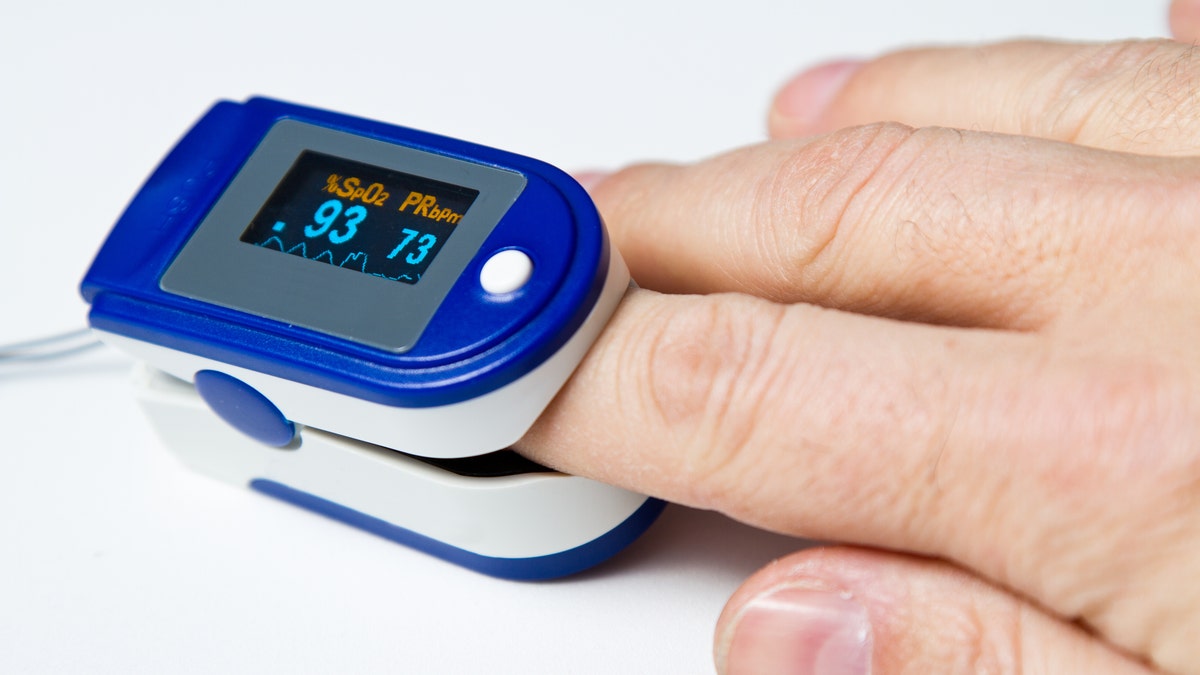Monitoring for coronavirus: What is an oximeter?
There's debate on whether you should have this oxygen monitoring tool at home for everyday use, or stick to using the oximeter only at the doctor’s office.
Known symptoms of the novel coronavirus include fever, cough and shortness of breath, according to the Centers for Disease Control and Prevention (CDC). But aside from using a thermometer to monitor for high temperature, should you be stockpiling your medicine cabinet with other tools, like an oximeter?

A pulse oximeter is a non-invasive way to monitor oxygen saturation in a person's blood. (iStock)
Andy Cohen, who was back at work nearly two weeks after testing positive for COVID-19, said that in addition to taking Tylenol, vitamin C and loading up on liquids, he used a pulse oximeter to monitor his oxygen levels.
CORONAVIRUS IN THE US: STATE-BY-STATE BREAKDOWN
The product is sold at drugstores and online, and is usually clipped onto a person’s finger in a non-invasive matter.
An oximeter is a tool that measures the oxygen saturation in a person’s blood. In a healthy person, oxygen saturation measures greater than 95 percent, but for those with chronic conditions such as COPD, the number may be lower.
Cohen said his doctor advised him on understanding readings that could be cause for alarm, which helped ease his fears while he recovered from COVID-19.
“You could scare yourself and think, ‘Oh my God, my lungs don’t feel right,’ but you could use this pulse oximeter and see, ‘OK, well actually, you’re fine, you’re within the range,’” he said on "Andy Cohen Live."
But at least one doctor says Americans shouldn't necessarily flock to the drugstore to wipe the shelves clean of oximeters.
“Having an oximeter is reasonable while under the care of a physician,” Dr. Alexa Mieses, a practicing family physician in Durham, N.C., told Fox News. “It is important to know whether or not your oxygen saturation is normal for you and what to do if it is not.”
Mieses said the tool is best used “in a health care setting” where a medical professional is present and can interpret the results and intervene if necessary.
“Please do not use an oximeter without consulting your physician,” she said.
CLICK HERE FOR COMPLETE CORONAVIRUS COVERAGE
If you do use it, and you are concerned about your oxygen levels, Mieses advises calling your physician.
“If you are concerned that your oxygen saturation is low, call your family physician right away as low saturation levels could be an indicator of hypoxemia which can cause the body to have difficulty delivering oxygen to all of its cells, tissues and organs,” Mieses said.










































